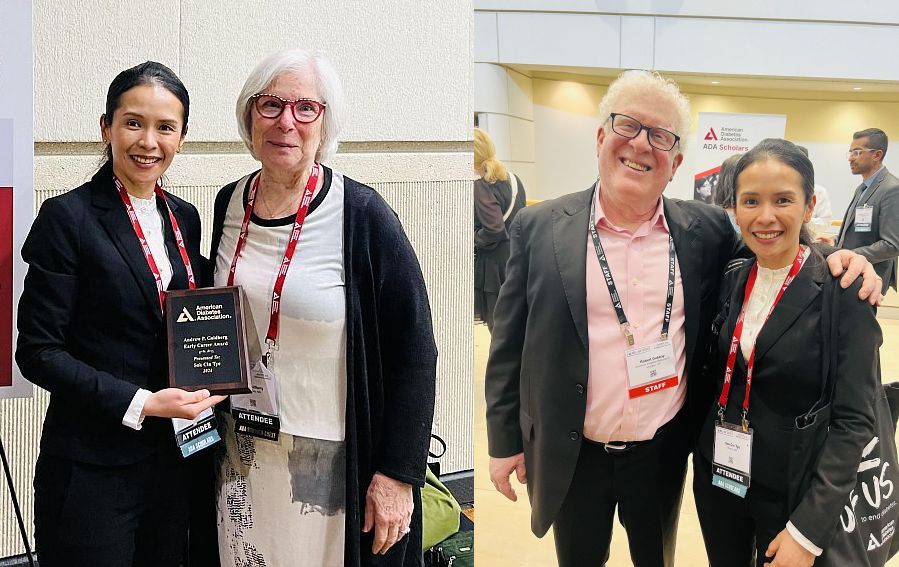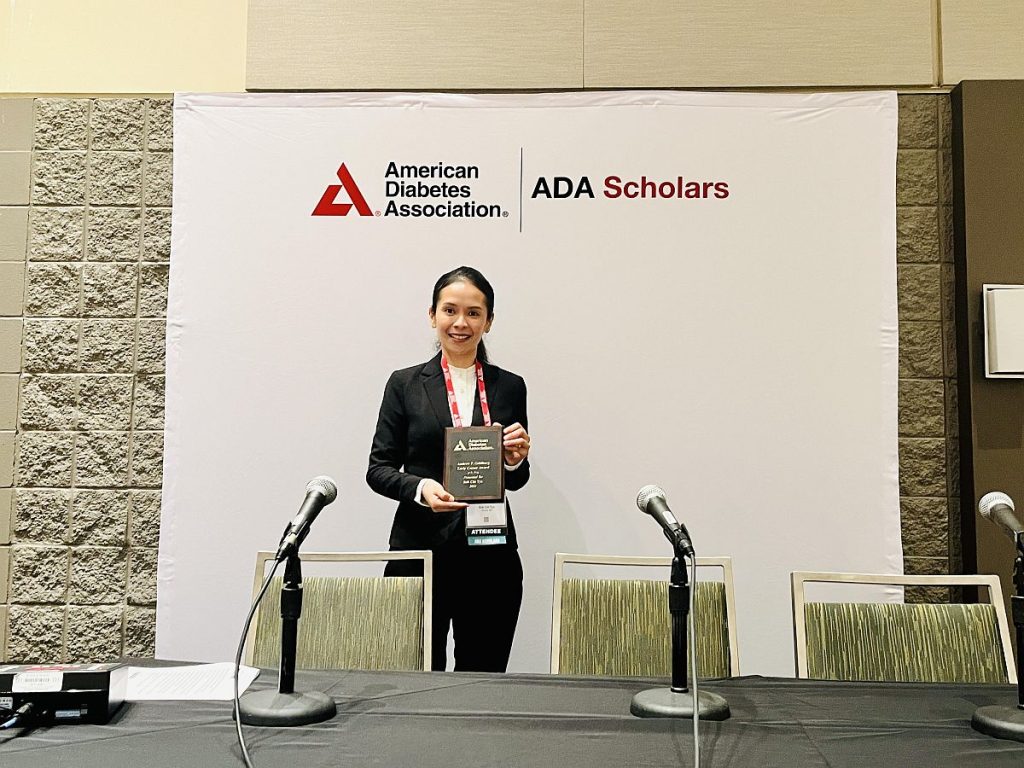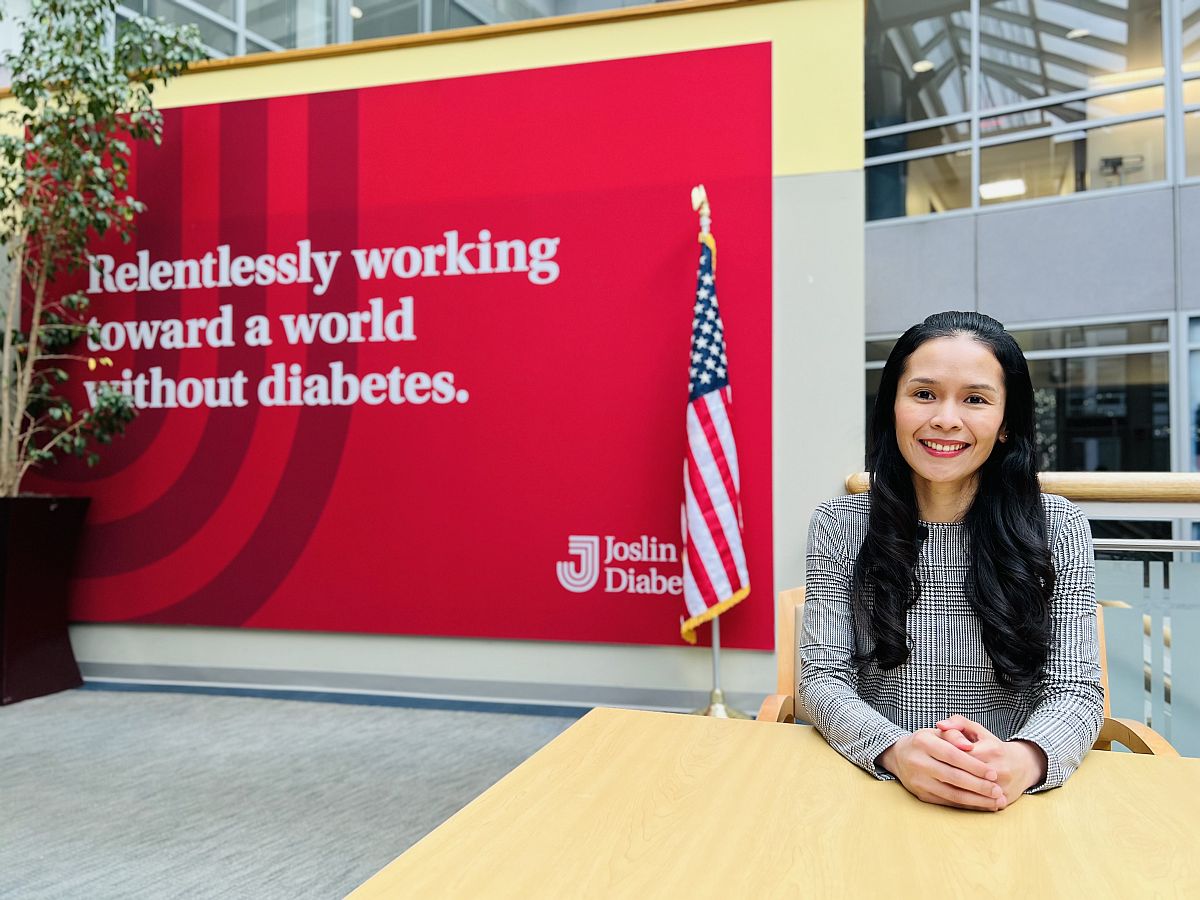KUALA LUMPUR, July 1 — A Malaysian scientist has been awarded the first-ever Andrew P. Goldberg Early Career Award by the American Diabetes Association (ADA) in recognition of her groundbreaking work in diabetes research.
Tye Sok Cin, currently a postdoctoral research fellow at the Joslin Diabetes Research Center, Harvard Medical School, focuses on precision medicine. Her work aims to develop personalised treatments for diabetes patients, tailoring medical care to individual needs to improve health outcomes.
“It is time for us to move away from the traditional one-size-fits-all approach in drug treatment and to move toward a personalised, a fit-for-each-one approach,” Tye told CodeBlue in an email interview last week.
“Using dynamic biomarker changes observed in clinical trials or longitudinal cohort data, I develop algorithms to identify patients at high risk for disease progression so that early intervention can be planned.
“At the same time, we want to identify patients who may or may not respond to a particular drug therapy so that we can offer alternate therapies or tailor treatment plans more precisely.”
The Journey From Durian Tunggal To Harvard

Tye’s journey to Harvard began in the small town of Durian Tunggal in Melaka, where she grew up with three siblings. Her parents not only fostered an environment of freedom for her to pursue her passions from a young age but also instilled values of hard work and integrity.
She attributes much of her early inspiration to her primary school teachers, whose support cultivated her interest in science and health care. “They were among the most inspiring and supportive individuals during my formative years,” Tye said.
After earning her undergraduate degree in pharmacy, Tye gained valuable experience working in hospital settings, including in Sabah, where she witnessed stark health disparities among underprivileged communities lacking access to essential medications like insulin.
“It was an eye-opener,” Tye recalled. “I constantly reminded myself to do as much as I could. I started working on drug formularies for the small pharmacy unit we had, setting up medication therapy adherence clinics like those in the peninsular, and spending weekends educating patients. These are some of the great memories I have.”
Tye then pursued a Master’s in clinical pharmacy at Universiti Sains Malaysia, driven by her commitment to continuous learning and supported by exceptional mentors who challenged her to exceed her limits.
Obtaining funding for her PhD proved challenging, but after persevering, she secured a scholarship in the Netherlands funded by the European Union’s Horizon 2020 research and innovation programme and the Marie Skłodowska-Curie Grant. During this time, she lectured, worked in retail pharmacy, and engaged in research, further honing her skills.
She also co-authored a book titled, “Basic Principles of Care and Medication Safety in Older Adults”.
“My four years pursuing a PhD in the Netherlands was another great learning journey. I met exceptional mentors and scientists, had supportive peers, and thoroughly enjoyed the highly stimulating environment.
“Due to Covid-19 restrictions, my opportunities to attend international conferences were limited until the final year of my PhD, when I was honoured to win the first prize for an oral presentation at a conference. It was during this time that I met my current mentor from the Joslin Diabetes Center, who offered me the opportunity to join his lab,” Tye said.
Finding Effective Targeted Ways To Treat Diabetes

Tye is at the forefront of diabetes research, driven by a profound commitment to integrating rigorous scientific inquiry with clinical care to improve patient outcomes.
Her interest in diabetes research was sparked by personal experiences with her grandparents battling the disease, inspiring her mission to improve care for elderly individuals managing chronic conditions.
“It is important to realise that diabetes is as expensive and debilitating as cancer,” Tye said. “Effective management is crucial from an early stage to prevent long-term micro- and macrovascular complications.”
Despite significant progress in diabetes treatments over the past decade, challenges remain in optimising patient responses to therapies, particularly in preventing kidney and cardiovascular complications.
Tye’s research explores innovative approaches in diabetes care, utilising technologies like real-time glucose monitoring and AI-driven algorithms.
She envisions a future where precision medicine, guided by genomics and biomarker research, allows tailored treatment to maximise efficacy and minimise side effects based on individual biological profiles.
Central to her work is the development of personalised treatment algorithms to optimise drug selection and dosage for each patient. This approach not only aims to improve treatment outcomes but also represents a significant step towards advancing our understanding of diabetes at molecular and clinical levels.
“One of the impactful aspects of my research is its translational potential. With novel biomarker discoveries and predictive algorithm development, we want to have the right drug, at the right dose, to be delivered to the right patient, at the right time.
“It is time to tailor treatment strategies more precisely according to each patient’s unique biological characteristics. As such, we could maximise drug efficacy among responders and prevent unnecessary side effects in patients who might not tolerate certain drugs,” Tye said.
Her long-term goals for her research include advancing our understanding of diabetes at both the molecular and clinical levels, striving to uncover novel biomarkers, and refining treatment algorithms to implement precision therapeutics in diabetes.
“As I undertake this endeavour, I draw inspiration from the wisdom of Leonardo da Vinci, who stated, ‘Simplicity is the ultimate sophistication’. I aim to further refine and validate the personalised treatment algorithm that can support patient care and improve individual clinical outcomes,” Tye said.
Malaysia’s Battle With Diabetes
In the Western Pacific region, Malaysia faces the highest diabetes rates, and one of the highest in the world, costing about RM3.1 billion annually.
This trend is worsened by factors such as sedentary lifestyles, dietary shifts, and environmental influences from fast-food and sugary beverage chains.
Tye said that addressing these challenges demands a multidisciplinary approach involving health care providers, patients, and policymakers.
She proposed a comprehensive strategy focusing on optimising treatment to manage multiple risk factors, extensive patient education on diabetes self-management, including dietary adjustments, promoting physical activity, and ensuring medication adherence.
“Policy makers should play a proactive role by implementing regulations that restrict the availability of sugary products in schools and public spaces, promoting healthier food options, and creating environments that support active lifestyles,” Tye said.
The National Health and Morbidity Survey 2023 recently revealed that over two million people in Malaysia are living with three types of non-communicable diseases (NCDs) such as diabetes, hypertension, and high cholesterol. Half a million are living with four NCDs, including obesity.
It is expected that seven million Malaysian adults aged 18 and older will be either prediabetic or diabetic by next year. Many of them will be undiagnosed and unaware of their status.
In terms of diabetes research, Tye advocates for strategic initiatives, given the rich resources available in the country, to advance diabetes research and care in Malaysia.
Key recommendations include:
- Establishing longitudinal diabetes registries and drawing insights from successful models in Nordic countries. These registries can systematically inform our understanding of diabetes prevalence, treatment outcomes, and population health trends, supporting evidence-based policymaking and improving diabetes care strategies tailored to the specific needs of our population.
- Harnessing electronic health records and advanced analytics to analyse real-world patient data, uncovering trends, disparities, and effective treatment strategies across diverse demographics and geographic regions in Malaysia.
- Facilitating more clinical trials within Malaysia to explore novel therapies, interventions, and technologies for diabetes management. This initiative aims to accelerate innovation, attract global pharmaceutical investments, and provide local access to cutting-edge treatments.
- Strengthening partnerships between local universities, hospitals, research institutes, and international collaborators. Collaborative efforts can leverage Malaysia’s diverse population and health care settings to conduct comprehensive studies.
For aspiring scientists and researchers in Malaysia, Tye offers practical advice: “Reach out, connect, and persevere.”
“Work collaboratively with those who share your passion and values. Remember, just as gold emerges from sand, success isn’t a final destination, and failure isn’t a permanent setback. Both are integral parts of the journey toward meaningful achievements.
“Stay resilient in the face of challenges; it’s the courage to persist through adversity that shapes true success. Never let self-doubt paralyse your aspirations; instead, use it as motivation to push beyond perceived limitations and achieve your goals.
“Seek out mentors, build supportive networks, and don’t hesitate to explore diverse funding opportunities and present your ideas confidently to potential supporters.”








